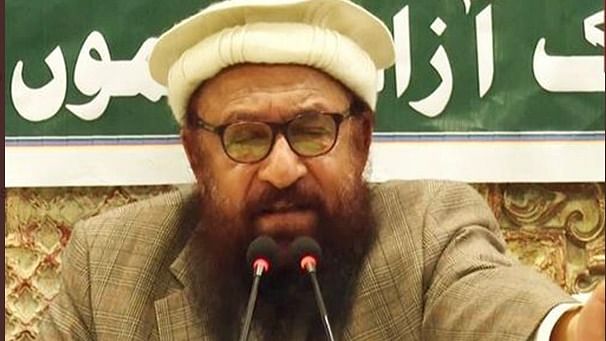
China finally allowed the United Nations Security Council to impose international sanctions on a terrorist leader based in Pakistan after shielding him against a joint move by India and the United States for almost six months.
The Security Council imposed full spectrum UN sanctions – travel ban, asset freeze and arms embargo – on the terrorist organization Lashkar-e-Taiba’s deputy chief, Abdul Rehman Makki, who was one of the masterminds of the November 26-28, 2008 carnage in Mumbai. The UNSC could act against the LeT leader after the “technical hold” China had placed in June 2022 on a proposal put forward by India and the US for placing international sanctions on him lapsed recently.
Beijing, which has been drawing flak from New Delhi for shielding terrorists, chose not to renew the “technical hold” on the proposal to designate Makki, the brother-in-law of the LeT founder Hafiz Saeed, as an individual linked to international terrorist networks and to place him under the UN sanctions.
China also placed similar “technical hold” on the proposals moved by India, along with other members of the Security Council, for imposing UN sanctions on four other terrorists based in Pakistan – Sajid Mir, Shahid Mahmood and Talha Saeed of the LeT and Abdul Rauf Asghar of the Jaish-e-Mohammed (JeM).
India had put forward proposals for putting curbs on the terrorists based in Pakistan during its tenure as a non-permanent member of the Security Council from January 2021 to December 2022.
Hours after Makki was placed under the UN sanctions, India stated that it would remain committed to pursuing a zero-tolerance approach to terrorism and would continue to press the international community to take credible, verifiable and irreversible action against terrorism. “Threats from terrorist organisations in the region remain high and listings and sanctions by the UNSC, are an effective tool to curb such threats and dismantle terror infrastructure in the region,” Arindam Bagchi, the spokesperson of the Ministry of External Affairs (MEA), stated in New Delhi.
Beijing, however, said that Makki had been convicted and sentenced by Pakistan. Wang Wenbin, a spokesperson of the Ministry of Foreign Affairs of the Chinese Government, said that the UN sanctions on Makki was “a sign of recognition of Pakistan’s staunch fight against terrorism”. “It also needs to be pointed out that the committee has clear guidelines regarding the designation of terrorist organizations and individuals and related procedures. China takes part in the work of the committee in a constructive and responsible manner in strict accordance with these rules and procedures.”
Makki is the second Pakistani, whom China, one of the five permanent members of the Security Council, allowed to be designated as a terrorist. The communist country had in May 2019 allowed its “technical hold” on a proposal to impose UN curbs on JeM founder Masood Azhar to lapse and thus let the Security Council place him under sanctions, albeit after blocking New Delhi’s bid and shielding the terrorist leader for years.
Beijing had stopped shielding the JeM leader at a time when Prime Minister Narendra Modi and Chinese President Xi Jinping had been personally leading efforts to mend the bilateral ties, which had hit a new low after the military stand-off in Doklam Plateau in western Bhutan in June-August 2017. The stand-off reached a flashpoint on June 15, 2020, when the soldiers of the two sides had a violent face-off in Galwan Valley. The Indian Army had lost 20 of its soldiers. The Chinese PLA had several months later admitted that four soldiers of the Chinese PLA had also been killed in the clash.
Though protracted negotiations over the past three years led to mutual withdrawal of troops by both sides from some of the face-off points, the stand-off could not be resolved completely.
China’s decision to stop shielding Makki and allow the UNSC to impose sanctions on the terrorist leader based in Pakistan has come when the communist country has been trying to claim that the disengagement of troops from Patrol Point 15 in September 2022 restored normalcy along the disputed boundary between the two nations.
India, however, has been dismissing China’s claim, repeatedly underlining that the overall relationship could not be normal as long as peace and tranquillity would not return to the border areas and the Chinese PLA would not stop flouting the bilateral agreements by deploying large numbers of troops along the LAC.
China had earlier blocked India’s moves to get the UN sanctions imposed on the LeT commander Zaki Ur Rehman Lakhvi and the Hizbul Mujahideen chief Syed Salahuddin – both based in Pakistan.
